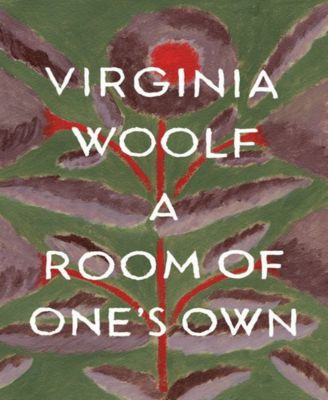A Room of One's Own by Virginia Woolf
Product details
Web ID: 11773877We must continue to benefit from women's minds
Much as it’s hard to critique a William Shakespeare or a Mark Twain, it’s hard to critique Virginia Woolf. She pioneered women’s literature in the early twentieth century and helped lay its foundation for an incredibly successful, bustling marketplace in today’s world. Despite nagging misogyny, women writers receive deserved respect because of Woolf’s proposals to let women’s genius work. So in one sense, this book offers a distilled, timeless essay worthy of historical study for decades, if not centuries, to come. In another sense, this work needs urgent study for today’s politics. Will women’s social progress continue? Will women’s minds continue to bear fruit for us all? Or will we indulge in circular arguments about their social roles – or even their inherent capabilities? Machismo culture is still rampant in some circles, and in today’s newspapers, those circles seem to be expanding, not retracting. In this six-chapter essay, Woolf imagines what would have happened if Shakespeare had an equally brilliant sister. Would her brilliance had found its audience? Probably not due to social impediments. Wolf observed that such obstacles were decreasing the decades before 1929. Can women find meaningful tasks, which Woolf defines as a steady income and a “room of one’s own…” with a lock on it? She answered a resounding yes, and subsequent decades support her assertion. In the century-or-so since Woolf’s essay, most Western societies have invested, albeit imperfectly, in women’s independence. We all have benefitted substantially from their social contributions that extend beyond caretaking and housekeeping. Yet women and men still waste too much energy fighting each other about their own social places, whether a domestic life is superior or inferior to a working life. Recently, many have rediscovered Woolf’s allusion to Coleridge’s “androgynous mind” in the form of gender fluidity. Perhaps reproductive roles isn’t as all-encompassing as some make them out to be; perhaps the reality of our lives is a lot more interesting than mere sex. Therefore, this book is at once both a historical capsule and a living classic. As a man, it helped me further understand women’s history and the choices women in my life still face. As we approach its 100th anniversary, I humbly suggest it should still be read and pondered. Woolf broke a lot of barriers and earned a prominent place in history. Less obviously but more acutely, she can keep earning that place if we take the time to read this short work.
Recommends this product

Customer review from barnesandnoble.com
A Classic for Creators
A literary classic that stands the test of time, provoking thought and conversations. Resonating especially with women artists, the writing is exquisite and precise.
Recommends this product

Customer review from barnesandnoble.com
A book for women; I intrude
I'm not sure whether this is an essay (or collection of essays), a novel, or a lecture. Furthermore, I'm not sure I had any business reading it: it is clearly addressed to women. Nominally a (very long) lecture, or perhaps a series of six lectures (but the chapters follow on so immediately from one another!), its form is that of a novel, in which, for the main part of the text, Woolf takes on the character of Mary Beton or Seton or maybe Carmichael, a woman tasked with writing a lecture(?) on the subject of Women and Fiction - which is, indeed, the topic Woolf seems to have been asked to address. But from within that character, the text turns into a series of political, historico-ecomomical, and literary essays. (Wikipedia helpfully informs me that it is "based on two lectures" delivered to womens' colleges at Cambridge). The themes seem, by and large, to be (1) the difficulties facing a woman who would write fiction (she needs, Woolf says, money and a room of her own, most of which were not available to women through much of history), and (2) what women might bring to fiction that men do not (of which the main contribution seems to be an interest in women, and the interests of women, as people and not as adjuncts to men; these being nearly non-existent in fiction written by men). There is little here that, in 2020, seems particularly radical about either of these themes, but in 1928 they must have caused many men's heads - and not a few women's - to explode. As always with Woolf, the writing is crystalline and powerful, clear and beautiful. The research behind the writing is intricate and convincing. The points made - and they are many - more than adequately support Woolf's major and minor themes. Quite a book.
Recommends this product

Customer review from barnesandnoble.com

